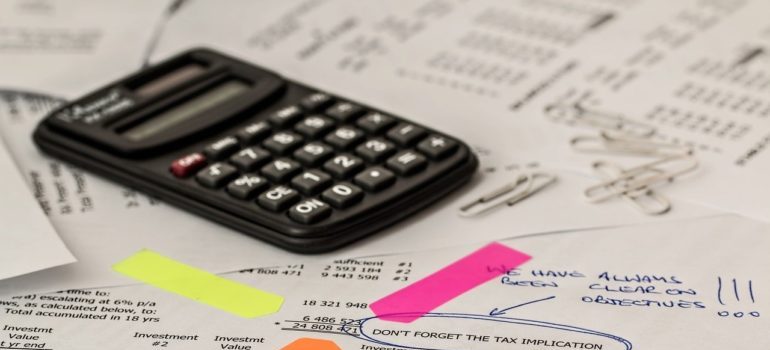In our line of work, we work with a lot of movers. Some of them start up their companies and see almost overnight success. But, most of them struggle for a while until they develop their client base and figure out how to deal with brand development strategies. Meanwhile, one of the things we see time and time again, even with successful moving companies, is poor bookkeeping. If you only knew how many companies approach their bookkeeping with little to no care, you’d be astonished. So, to combat this unfortunate fact, we are going to go over some of the most common bookkeeping mistakes and how to avoid them.
Most common bookkeeping mistakes
When bookkeeping is done properly, it looks almost like an art. Every receipt and every expense carefully categorized noted and saved for further use. A poem of numbers and dates. Beautiful. But, unfortunately, this is rarely the case. Most people cringe at the mere mention of bookkeeping as they see it as both boring and difficult. So, they put off dealing with it until the problem becomes way more complicated. So, the first advice we are going to give you is to start dealing with your bookkeeping as soon as possible. Just by doing so you will avoid almost all of the bookkeeping mistakes we are going to mention.

Trying to deal with it without professional help
Once people actually start dealing with bookkeeping, this is the first mistake that they make. They look into it a bit and say: “Hey, I can deal with this!” Well, as it turns out, you can’t. Just like you need to hire a company for SEO development, so do you need to hire a professional to deal with bookkeeping for you.
Remember, there is a reason why people attend bookkeeping schools. The more your company develops, the more bookkeeping you will have to deal with. And, the only way to deal with it properly is to hire a good CPA to help you out. Not to mention that a small mistake in bookkeeping can have huge financial and legal repercussions.
Mixing personal and business transactions
While running your moving company you will have a lot of financial transactions. And the last thing you want to do is to mix your business transactions with personal ones. Mistakes like this can have small consequences like you forgetting to claim a tax deduction for a business expense. But, it can have big consequences like IRS calling you in because you claimed a tax deduction for a personal expense. So, do yourself a favor and separate your personal and business transactions from the get-go. The sooner you get used to having those two separate, the better.
Dealing with cash flow
Another thing to start tackling from the get-go is your cash flow. Put simply, this the amount of money you have coming and the amount of money that is going out for supplies and bills. The main problem here is that keeping track of your cash flow can seem useless, especially while your company is young. You can easily for the standard bookkeeping mistake of “felling” your cash flow and not worrying about any exact numbers.

While this is possible in the company’s infancy, after a while it definitely won’t be. So, you’d be smart to start getting your monthly statements and keeping a close eye on how well your cash flow is going. If your business is doing well, then great. But, if your moving company is doing poorly, you should be aware of it as soon as possible. There are some tremendous apps that make this much easier and streamlined, so there is not much reason for you to neglect it.
Neglecting tax deductions
Figuring out which tax deductions you have and claiming them should be something every company owner looks for. After all, it is free money. So, why don’t people bother with it? Well, again, it looks more complicated then it is. IRS will be more than happy to give you a “simple” tax plan that will keep in you the clear. But, you’d be smart to consult with your accountant and find a tax plan that works for you. An experienced accountant will be able to save you a surprising amount of money that you can then fuel into your business.

Prematurely getting rid of records
Getting rid of your records usually won’t have much of an impact. If fact, most companies can go for years without ever having to check their financial records. But, if the IRS comes knocking and you don’t have your receipts, you could be in a world of trouble. So, do the right thing, and keep your receipts. Ideally, you want to have both a digital and a physical version so that there is no risk of losing them. You need to save your receipts for at least three years. This is because the period of limitations for tax returns is three years. Therefore, during those three years, the IRS will be able to audit you and you’ll be able to amend your tax return.
Conclusion
As you may have noticed, most of the bookkeeping mistakes come from people’s negligence. Once you get a hang of it, bookkeeping is really not that hard. Plus, it gives you an unbiased view of how well your business is doing and what your finances are. By having a firm grip on your expenses you’ll be able to cut needless ones and fuel your business properly. With some helpful tips, you can even learn how to promote your business for free and save even more money for business development. But, all of that money will only make sense if you keep your books clean and your record straight.






